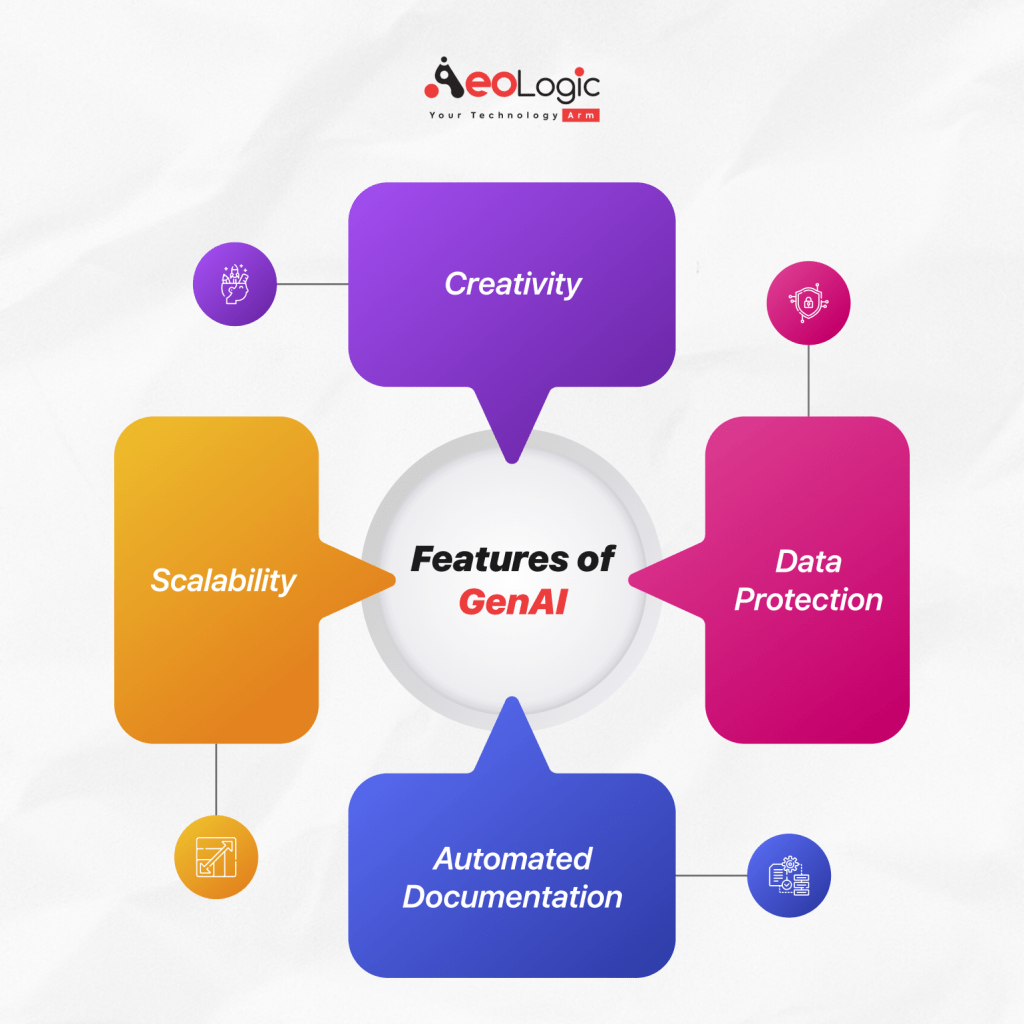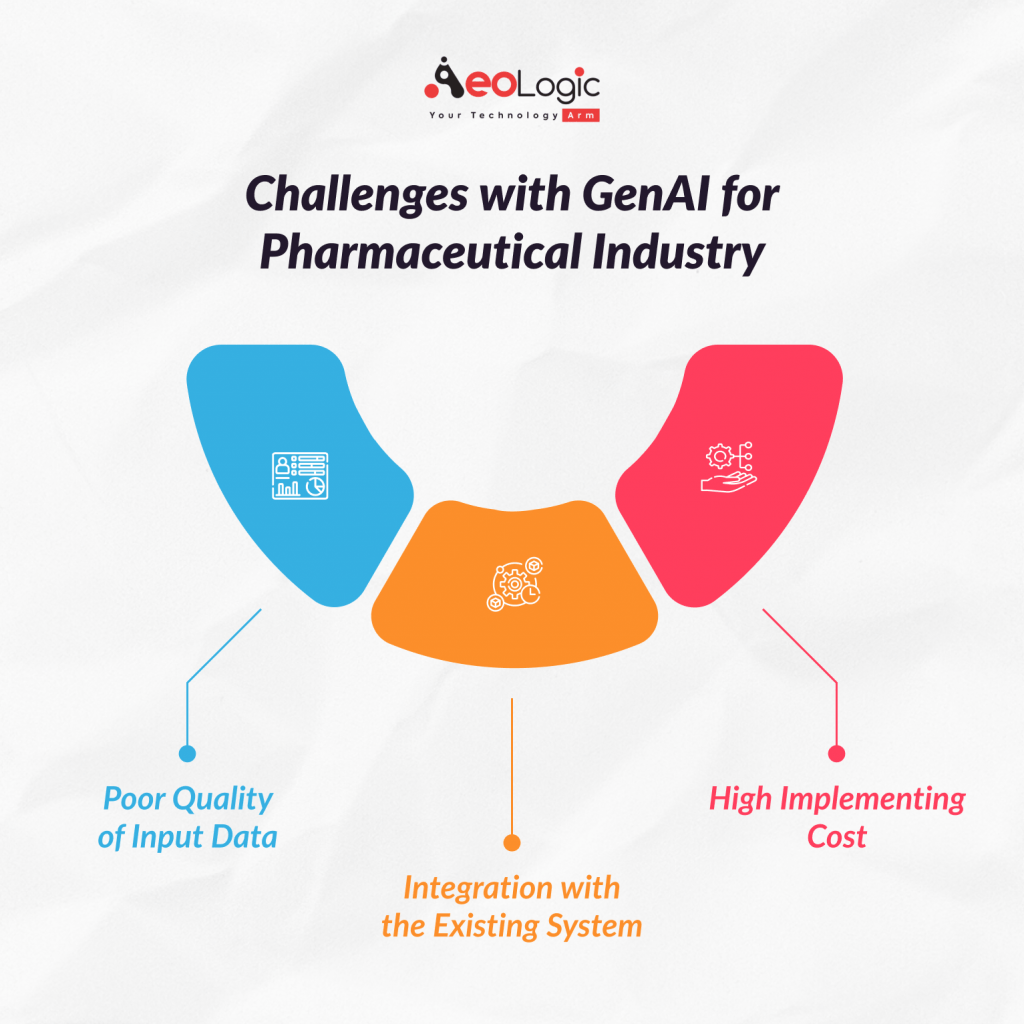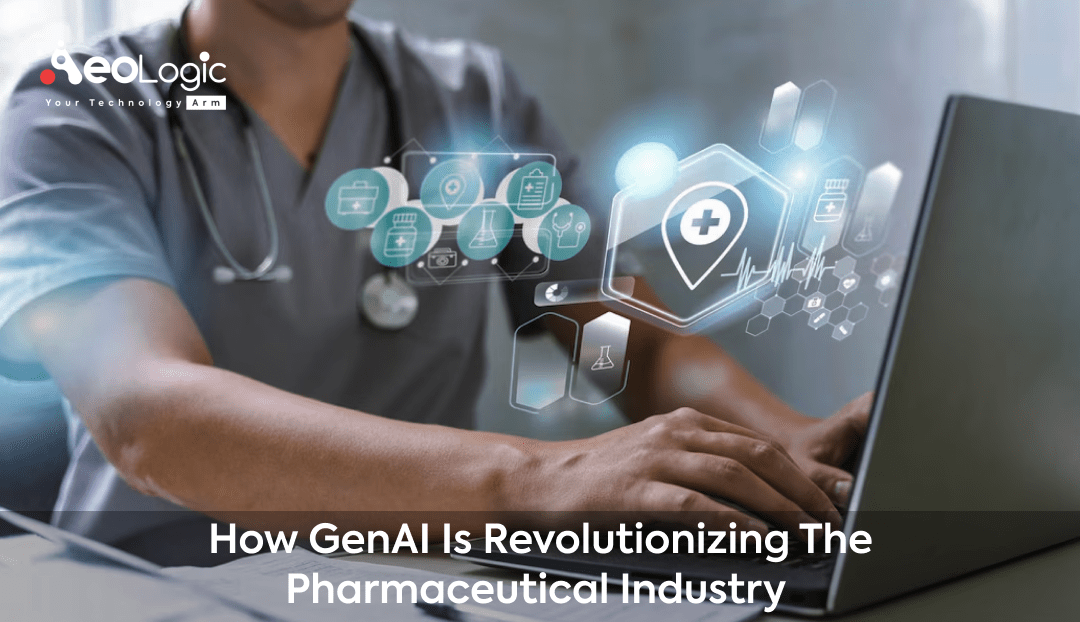The medical industry is all about medicine mainly as it is not possible to cure patients without medicines. Many pharmaceutical industries make medicine based on the detection of disease types as there are pharmaceutical scientists that identify the chemical formation to make any particular medicine for any particular problem. But sometimes it is difficult to find out the problem type and also critical to find out the proper chemical formation to make drugs. This is a problem that every pharmaceutical industry faces and it is very important to solve. GenAI for pharmaceutical industry is the thing that can solve almost all problems of healthcare. This technology is not only a boon in the aspect of medicine formation but also could make a profitable impact on the pharmaceutical industry. The McKinsey Global Institute (MGI) has estimated that the technology could generate $60 billion to $110 billion a year in economic value for the pharma and medical-product industries.
We will see what capabilities GenAI holds that could revolutionize the pharmaceutical industry. Also, we will go through the benefits of GenAI, use cases, and other aspects that are important for evolution in the pharma industry.
What is Generative AI?
Generative AI is a type of artificial intelligence technology that can produce various types of content, including text, imagery, audio, and synthetic data. Now many of you are thinking that if it is a type of artificial intelligence then what are the differences that make it Generative? So the difference is that Artificial intelligence can process data and make possible predictions whereas generative AI can identify patterns and generate exact real-world outputs. GenAI technology is not new as Generative AI was introduced in the 1960s in chatbots. But it was not until 2014, that the introduction of generative adversarial networks, or GANs – a type of machine learning algorithm.
Also Read: Transforming Healthcare Document Processing with AI Solutions
Role of GenAI for Pharmaceutical Industry
As we mentioned in the first part, it has a vital contribution to the pharmaceutical industry in the future in terms of revenue generation. But it also has some other abilities that are beneficial for the medical industry to cure patients. GenAI’s predictive and regenerative capabilities enable targeted therapies and streamline drug formulation design, fostering innovation and efficiency in R&D processes.
This integration is poised to provide the pace of the drug development process, ensuring that administered drugs yield optimal therapeutic responses in patients as soon as possible. Gen AI also assists in data analysis, predicting side effects, and repurposing drugs to save the patient’s life from the wrong behavior of the drugs. There are many other benefits and use cases of the GenAI too that we will see later.
Key Features of GenAI
Generative AI technology possesses a lot of features as here are some key features of Generative AI that have been mentioned below.

Creativity
Generative AI can produce creative outputs by learning patterns and existing data. The pharmaceutical industry can get benefits in creating new medicines and compositions by these characteristics.
Data Protection
Data protection is a major thing in any industry as GenAI creates a security layer on the existing data that no one can steal to make an assault or any offense on the company.
Scalability
GenAI models can easily adapt to different sizes and types of data, making them highly scalable. Pharma companies should not worry about the data sizes as this technology can process a lot of data.
Automated Documentation
GenAI’s impact extends beyond code, revolutionizing the traditionally painstaking task of software documentation. This technology can automate the documentation process making work easy and faster for pharma companies.
Also Read: The Role of RFID Technology in Healthcare Industry
Benefits of GenAI for Pharmaceutical Industry
With these above-mentioned features of GenAI, there are a lot of benefits offered as here are some benefits mentioned for the pharmaceutical industry.
Broaden the Diversity of Treatments
GenAI algorithm to form new and best possible composition based on processed data of the diseases make broader treatments diversity. This technology can identify diseases and drug behavior for the diseases easily that manually could be critical to find out.
Reduce Drug Development Cost
Preparing a drug takes a lot of hard work and time by the pharmacist scientist and other scientists too. This reduces the total cost of drug development but with the GenAI, the drug development process can be easy and short resulting in reducing the drug development cost for the pharmaceutical industry.
Increase Drug Approval Rates and Get Treatments to Patients Faster
This is also a critical thing to get approval on any drugs by the Food And Drug Administration as there should be not a single mistake in the composition of the drug that could risk side effects. Manually prepared drugs sometimes do not get approved and can’t reach patients soon. With GenAI, there are fewer error rates drugs easily get approved and patients are treated faster.
Use Cases of GenAI in the Pharmaceutical Industry
Here are some use cases of GenAI in the pharmaceutical industry mentioned below.
Enabling Personalized Medicines
GenAI can be used to prepare personalized medicines as by analyzing extensive patient data, including genetic profiles, medical histories, and lifestyle factors, GenAI algorithms can tailor treatment plans to individual needs.
Automating Supply Chain
The supply chain is always a crucial factor for pharmaceutical companies as GenAI can automate the supply chain by accurately forecasting drug demands based on market trends, historical sales data, and external factors.
Accelerating Drugs Discovery
Traditional methods of discovery of drugs based on diagnosis of diseases are very slow as GenAI can accelerate the process by analyzing molecular properties, projecting compound models, predicting outcomes of combinations, and forecasting potential adverse effects of new drugs.
Also read: The Role of Information Technology in Healthcare
Challenges with GenAI for Pharmaceutical Industry

GenAI is undoubtedly the best technology that can be beneficial for the pharmaceutical industry in many ways. But some challenges could be faced. Here are the challenges mentioned below.
Poor Quality of Input Data
Inaccurate or poor-quality data can significantly impair these models, leading to unreliable outputs that result in preparing the wrong composition and can be risky for patients too.
Integration with the Existing System
The successful integration of Generative AI in the pharmaceutical industry demands collaboration across disciplines as it is very critical to integrate GenAI with existing systems. Sometimes interdisciplinary action could cause the whole system to disintegrate with others.
High Implementing Cost
GenAI is a superior technology that is based on a natural language processing algorithm. So with these abilities surely it has a higher cost to implement. This could be a challenge for the pharma industry as not all companies have affordable revenue to implement this technology.
Conclusion
Many pharmaceutical companies have already used GenAI in drug development but only implementation does not give the guarantee of revolutionizing the industry. Companies won’t unlock the full potential of gen AI until they understand how to use it correctly. That will require both time and patience. So there is a lot of work to do with this technology and to pharma companies too but again, GenAI has a full potential to revolutionize the pharmaceutical industry at a faster pace.
To discover more about how GenAI in pharmaceutical industry can revolutionize organizations, connect with Aeologic Technologies.







